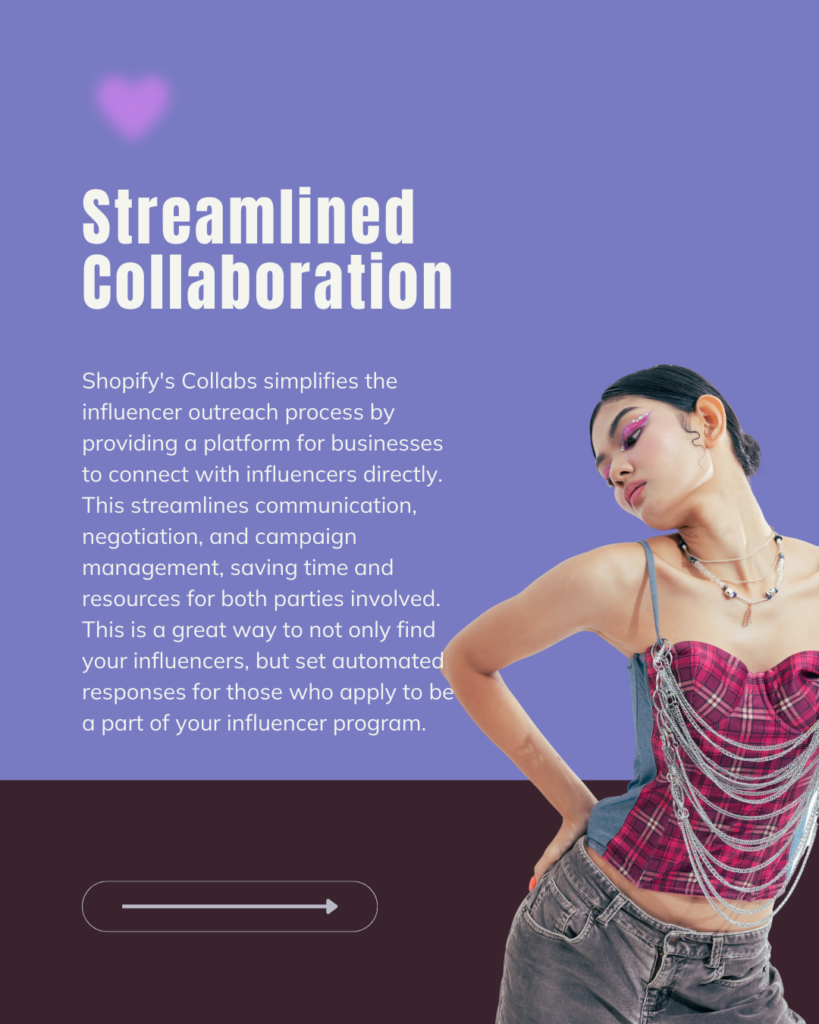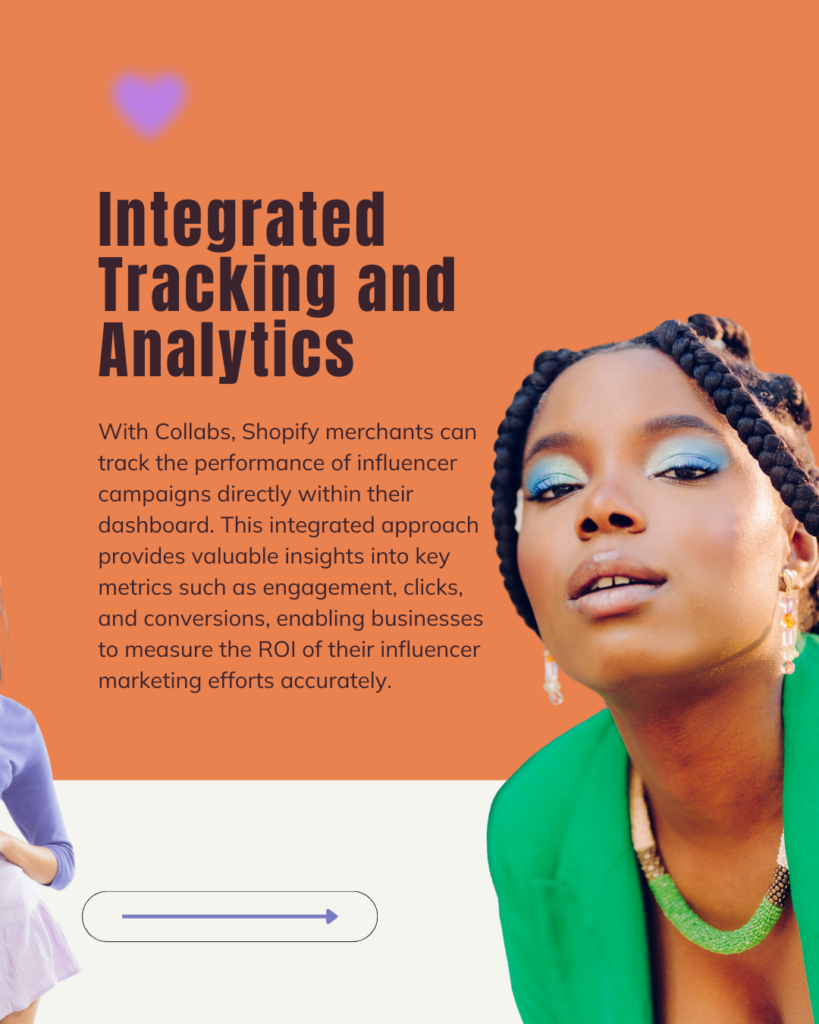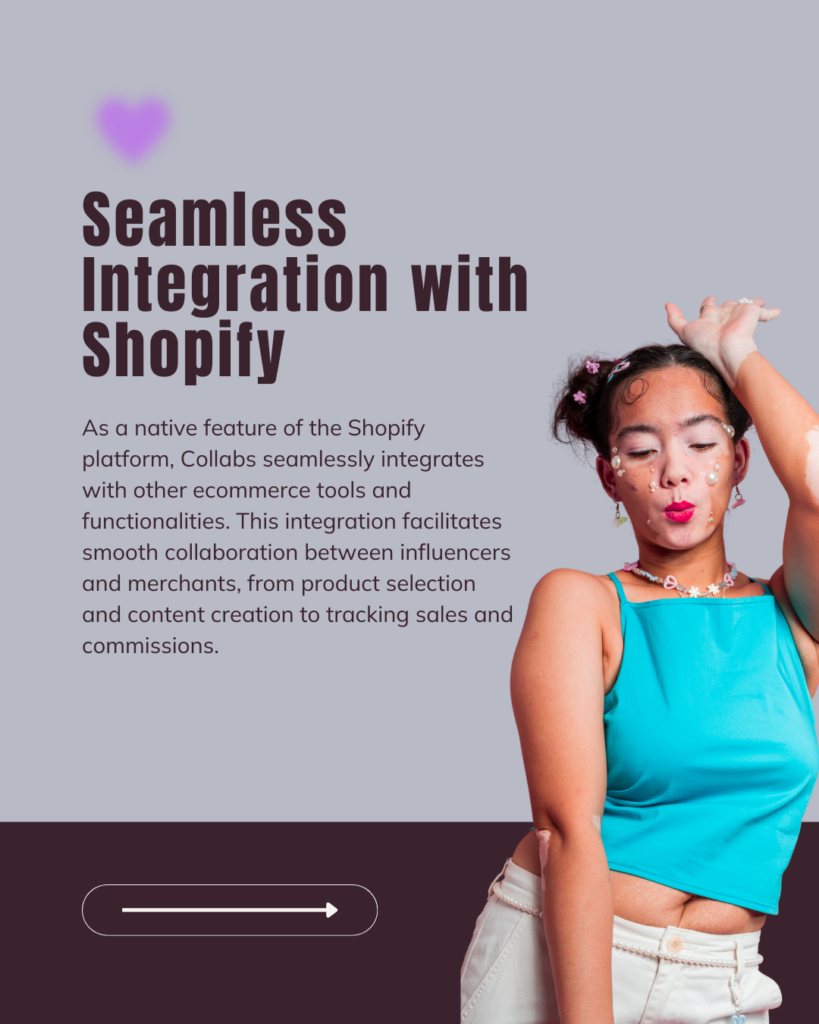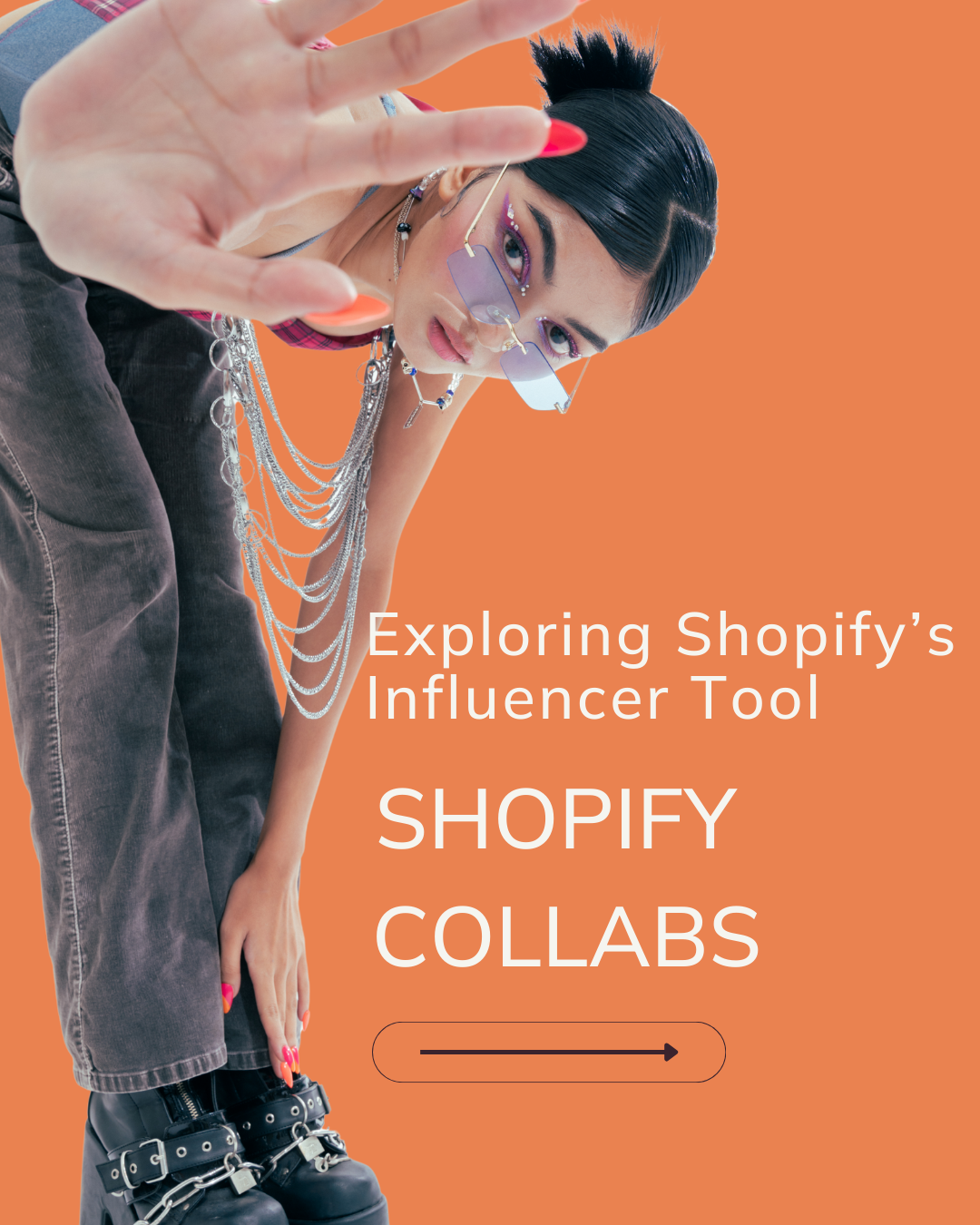WRITTEN BY: KATHRYN LANG
And how Flywheel Strategies helps brands succeed in their influencer marketing strategies.
Staying ahead of the curve when it comes to social marketing trends often means leveraging innovative tools and platforms to enhance brand visibility and drive sales. One such tool that has garnered our attention is Shopify‘s influencer marketing feature, Shopify Collabs. Designed to streamline the process of collaborating with influencers, Collabs offers you a unique opportunity to tap into the power of influencer marketing. However, like any marketing tool, Collabs comes with its own set of advantages and drawbacks. Here’s how our team thinks about the pros and cons of using Shopify’s Collabs to help with your Influencer marketing strategies.
Pros of Shopify Collabs:
Streamlined Collaboration: Shopify’s Collabs simplifies the influencer outreach process by providing a platform for businesses to connect with influencers directly. This streamlines communication, negotiation, and campaign management, saving time and resources for both parties involved. This is a great way to not only find your influencers, but set automated responses for those who apply to be a part of your influencer program.
Access to Diverse Influencers: Collabs offers access to a diverse pool of influencers across various niches and industries. Whether you’re targeting fashion enthusiasts, tech aficionados, or wellness gurus, you can find influencers whose audience aligns with your target market, helping to maximize the impact of your campaigns.
Integrated Tracking and Analytics: With Collabs, Shopify merchants can track the performance of influencer campaigns directly within their dashboard. This integrated approach provides valuable insights into key metrics such as engagement, clicks, and conversions, enabling businesses to measure the ROI of their influencer marketing efforts accurately.
Seamless Integration with Shopify: As a native feature of the Shopify platform, Collabs seamlessly integrates with other ecommerce tools and functionalities. This integration facilitates smooth collaboration between influencers and merchants, from product selection and content creation to tracking sales and commissions.
Budget-Friendly Options: Collabs offers flexibility in terms of budgeting, allowing businesses of all sizes to participate in influencer marketing campaigns. Whether you’re working with micro-influencers or top-tier creators, you can find pricing options that align with your marketing objectives and financial resources.





Cons of Shopify Collabs:
Limited Influencer Discovery: While Collabs provides access to a network of influencers, the platform’s influencer discovery capabilities may be somewhat limited compared to dedicated influencer marketing platforms. Businesses may find it challenging to identify and connect with niche or industry-specific influencers outside of the Collabs network. At Flywheel, we work with a variety of third party apps that can help with the discovery of other influencers that can bring your brand to their audience.
Competition for Influencer Attention: As influencer marketing continues to gain popularity, competition for influencer attention is fierce. With numerous brands vying for collaboration opportunities, businesses using Collabs may find it challenging to stand out and capture the interest of high-profile influencers. Flywheel can help with your messaging and positioning to potential influencers, whether you’re looking for large or micro influencers. Our key strategy is ensuring you’re working with influencers that are authentic to your brand.
Potential for Inauthentic Partnerships: In the quest to secure influencer collaborations, some businesses may fall into the trap of prioritizing quantity over quality. This can lead to inauthentic partnerships where influencers promote products that don’t resonate with their audience, resulting in decreased credibility and engagement. Collabs gives you a wide variety of influencers to work with, however to ensure your influencer strategy works, you need to prioritize quality over quantity. With the right strategy, influencer marketing can be a game-changer for brands.
Dependency on Platform Reliability: Relying solely on Shopify’s Collabs for influencer marketing may pose a risk in terms of platform reliability and stability. Any technical glitches or downtime on the platform could disrupt ongoing campaigns and impact business performance, highlighting the importance of diversifying marketing channels. Flywheel focuses on having a breath of partners and apps to ensure that your marketing strategies are not reliant on one platform.
Limited Customization Options: While Collabs offers convenience and efficiency, some businesses may find its features lacking in terms of customization and personalization. Brands looking to execute highly tailored influencer campaigns with unique creative concepts and messaging may encounter limitations within the platform.
Conclusion:
Shopify’s Collabs presents a compelling opportunity for ecommerce brands to harness the power of influencer marketing within the familiar environment of their Shopify dashboard. From streamlined collaboration and integrated analytics to budget-friendly options, we’ve worked with a variety of brands that have benefited from Collabs to amplify their brand reach and drive sales through influencer partnerships.
However, it’s essential to weigh these advantages against the potential drawbacks, such as limited influencer discovery, competition for influencer attention, and dependency on platform reliability. Our Growth Marketing specialist, Kathryn Lang, can help with this.
To learn how Shopify Collabs can help with your Influencer strategy, book a time with Kathryn today.

BE THE FIRST TO COMMENT: